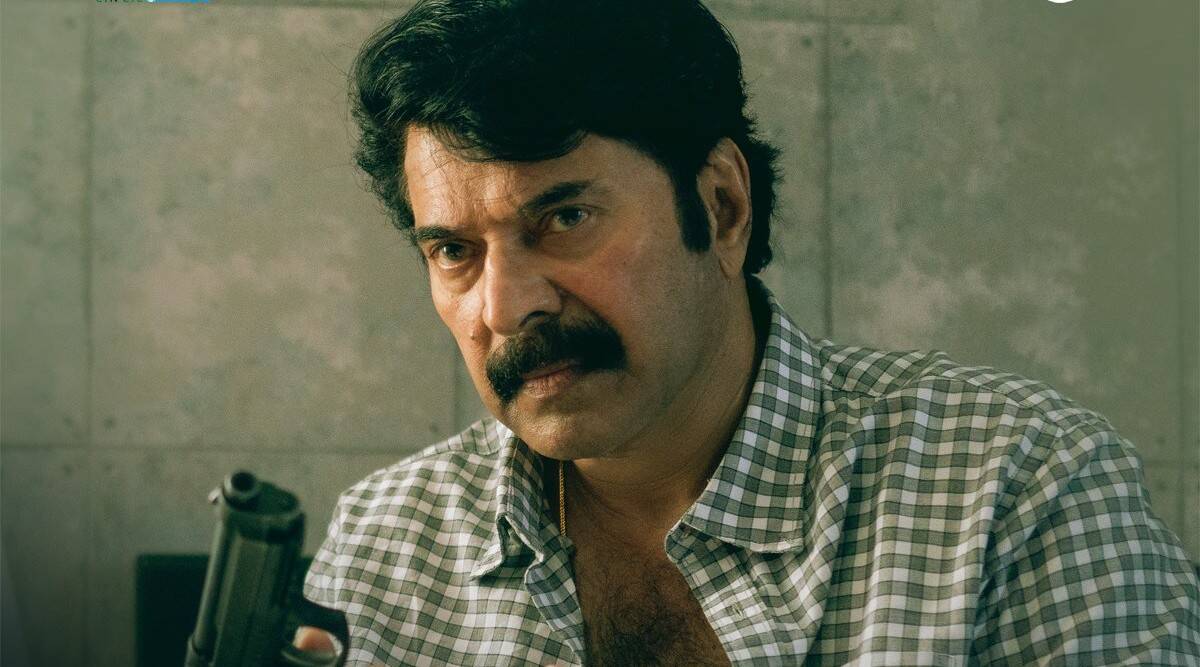Puzhu by debutante director Ratheena is an essential watch in 2022 – not just for the incredibly nuanced performance delivered by Mammootty, but also for the themes it handles with great subtlety. Casteism receives a novel treatment in this bleak Malayalam movie that doubles as a psychological study of a casteist man in contemporary Kerala society.
Superstar Mammootty’s character Kuttan is the embodiment of several evils – casteism, toxic parenting or a cruel professional life – and his acting will have you squirming like a worm, the eponymous Puzhu.
Kuttan is a retired police officer raising his son alone in an apartment complex that he ensures is inhabited by people only from “our community“. The extent of his bigotry is revealed by his reaction to his sister moving in to a flat in the same building as she married to a Dalit man – B.R. Kuttappan (Appunni Sasi).
Kuttan is repulsed by even the sight of Kuttappan.
Kuttappan, however, is not daunted by Kuttan’s power and privilege; in fact, he is a proud academic and dramatist. For him, discrimination is part of everyday life. In one scene, Kuttappan and his ‘fair’ wife, Bharati (Parvathy Thiruvothu) apply for a marriage certificate. The clerk approaches both of them differently. He blurts a casteist slur and Kuttappan reacts surprisingly fast with a tight slap. Later, at the police station, the delicacy of the situation is not lost on them. When the clerk wants to file for an attempt to murder, Kuttapan pleasantly says that he would respond with an SC/ST atrocities case. “But I’d rather let go,” he smiles. “If I file cases at every such instance, that would be my only job. That’s why I slapped him. Enough and done.”
The incisive dialogues in this film bring out the inner compulsions of each character. “Go clean toilets,” Kuttan had once bellowed, confronting Kuttappan in a police cell for having a relationship with his sister.
In the present time, his repulsion is even more evident in the silent but incredible acting Mammootty puts forth. One is sucked in by his performance. We still see Kuttan struggling to accommodate the affection he has for his sister. He believes he is ‘suffering’ from seeing his sister ‘polluted’. “Where did we go wrong?” he sobs at his invalid mother’s bed.
The depth of characterisation is unbelievable. We almost empathise with the troll.
He goes wrong with his son too. We see him as a controlling parent, imposing his own world onto his son. There is no physical abuse or yelling or screaming. But the silence and deceptive calm of the home is even more menacing. He micromanages his son’s life, suffocating even the viewer. “Good morning father,” greets his son ritualistically. He responds, “Good morning Kichu,” every time. They brush together, eat together and watch the same home video everyday quietly together. He clearly believes that he is protecting his son because he is shocked when his son says that he doesn’t like him. That hardly comes as surprise for the viewer though.
Puzhu manifests in different layers in the film. It zeroes in on the worm that inhabits all of us to varying degrees – casteism, racism and classism. And the worm from the myth of Thakshakan, which is a recurring motif in the movie. The film opens with Kuttappan’s performance of Thakshakan from the Mahabharatha. Myth has it that the vain King Parikshit was cursed by a Brahmin that he would be bitten by Thakshakan, the king of snakes, in seven days. The King steps up his security, but is eventually killed by Takshakan who enters his palace in the form of a worm.
Najila Yahu is an Assistant Professor &Head, PG Department of English, MES Keveeyam College, Valanchery.

